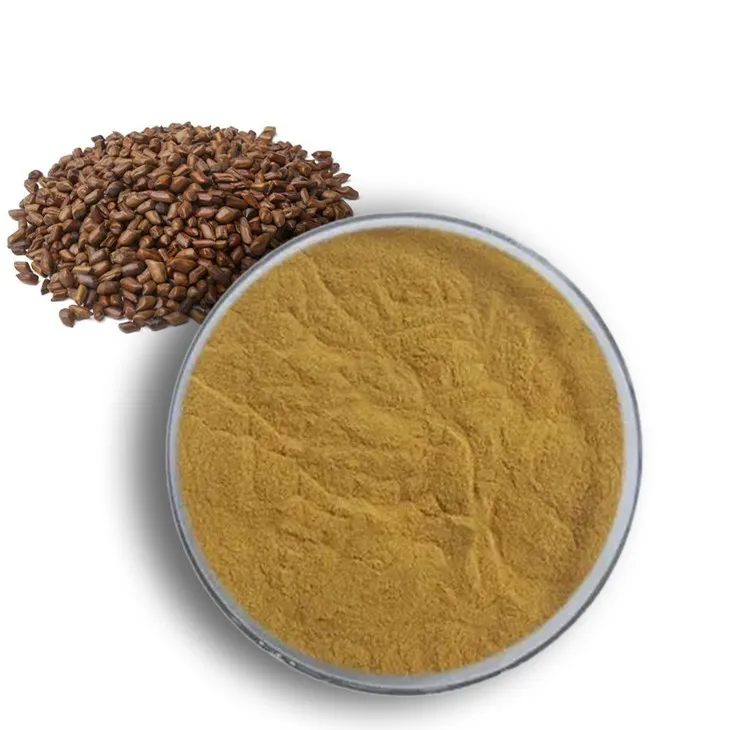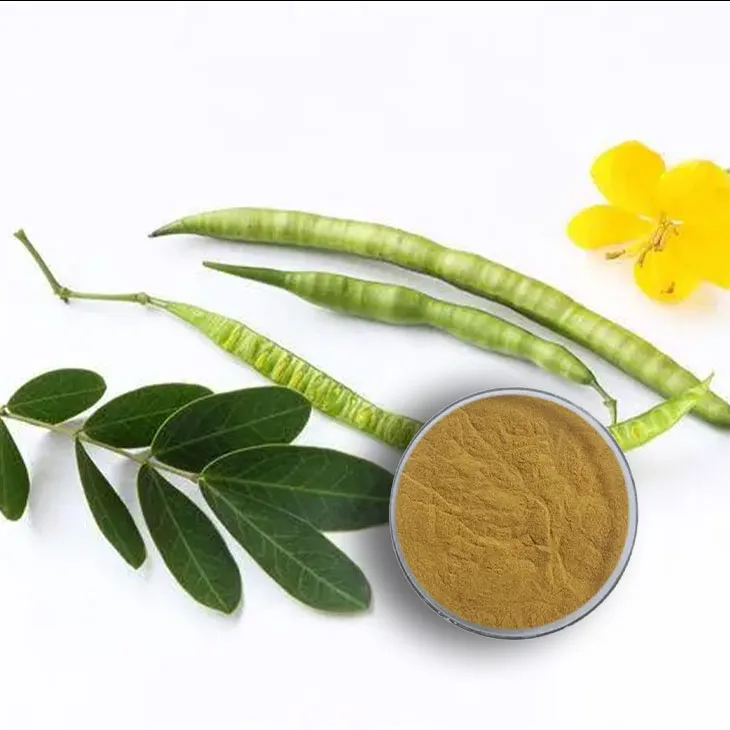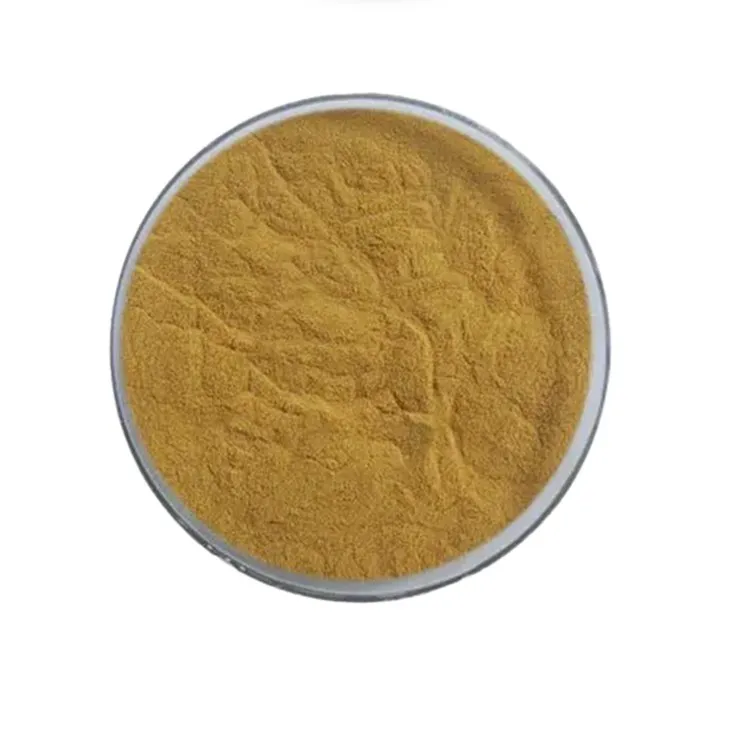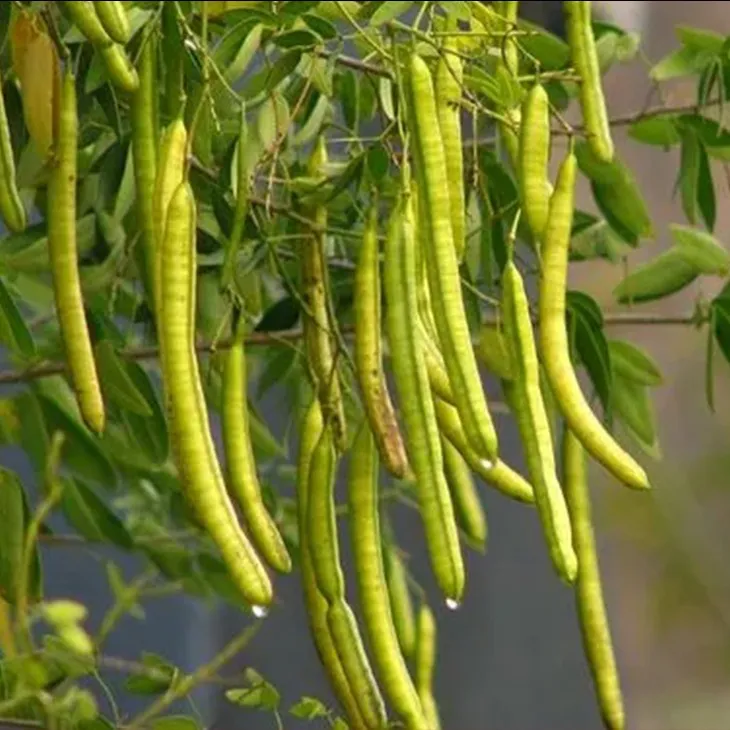- 0086-571-85302990
- sales@greenskybio.com
Unlocking the Secrets of Cassia Seed Extract: A Journey Through Botanical Origins and Composition
2024-08-10

1. Botanical Origins
Cassia is a genus of plants that has a rich and diverse range of species. The cassia seeds, from which the extract is derived, come from certain species within this genus. These plants are widely distributed across different regions of the world.
1.1 Natural Habitats
Cassia plants are often found in tropical and subtropical regions. They thrive in areas with warm climates, abundant sunlight, and well - drained soil. For example, in Southeast Asia, countries like India and Indonesia are home to various Cassia species. In India, the diverse climatic zones allow different types of Cassia plants to grow in regions ranging from the humid coastal areas to the drier inland regions.
1.2 Growth Conditions
Sunlight is a crucial factor for the growth of Cassia plants. They require a significant amount of sunlight to carry out photosynthesis effectively. Adequate sunlight ensures the proper development of leaves, stems, and ultimately, the formation of seeds. In terms of soil, Cassia plants prefer soil that is rich in organic matter. This type of soil provides the necessary nutrients such as nitrogen, phosphorus, and potassium. Additionally, the soil should have a proper pH level, usually slightly acidic to neutral.
Water availability also plays an important role. While these plants can tolerate some degree of drought, they still need regular watering, especially during the growing season. However, over - watering can be detrimental as it may lead to water - logging and root rot.

2. Composition
Cassia Seed Extract is a complex mixture of various chemical components, each contributing to its unique properties and potential benefits.
2.1 Anthraquinones
Anthraquinones are one of the key components in Cassia Seed Extract. These compounds are known for their laxative properties. For instance,rhein and emodin are two important anthraquinones present in cassia seeds. They work by stimulating the intestinal muscles, which helps in promoting bowel movements. This makes Cassia Seed Extract potentially useful in treating constipation. However, it is important to note that the use of anthraquinone - containing products should be carefully monitored, as excessive use may lead to adverse effects such as electrolyte imbalance.
2.2 Flavonoids
Flavonoids are another significant group of compounds in cassia seed extract. They are known for their antioxidant properties. Antioxidants play a crucial role in protecting the body against oxidative stress. Oxidative stress is associated with various diseases such as cancer, heart disease, and neurodegenerative disorders. Some of the flavonoids in cassia seed extract, like catechins and flavonols, can scavenge free radicals in the body. This helps in reducing the damage caused by these reactive molecules and maintaining the overall health of cells.
2.3 Tannins
Tannins are also present in cassia seed extract. Tannins have astringent properties, which means they can cause the contraction of tissues. In the context of the digestive system, tannins can help in reducing inflammation in the intestinal mucosa. They also have the ability to bind to proteins, which may be beneficial in certain situations such as in cases of diarrhea. However, high levels of tannins may also interfere with the absorption of certain nutrients, so their consumption should be balanced.

3. Potential Benefits and Applications
The unique composition of cassia seed extract gives rise to a wide range of potential benefits, which in turn lead to its applications in different fields.
3.1 In Medicine
- Treatment of Eye Disorders: Cassia seed extract has been used in traditional medicine for treating eye problems. It contains certain components that may help in reducing intraocular pressure. This makes it potentially useful in the management of glaucoma. For example, some studies have shown that the flavonoids in the extract may have a protective effect on the optic nerve, which is often damaged in glaucoma patients.
- Digestive Health: As mentioned earlier, the anthraquinones in cassia seed extract can be used to relieve constipation. Additionally, the tannins can help in treating diarrhea by reducing inflammation in the intestines. The overall effect on the digestive system is a balance between promoting proper bowel movements and maintaining the integrity of the intestinal mucosa.
- Anti - inflammatory Effects: The presence of flavonoids and tannins in the extract gives it anti - inflammatory properties. These properties can be beneficial in treating various inflammatory conditions such as arthritis. In arthritis patients, the inflammation in the joints can cause pain and reduced mobility. Cassia seed extract may help in reducing this inflammation, thereby alleviating the symptoms.
3.2 In Cosmetics
- Skin Health: The antioxidant properties of the flavonoids in cassia seed extract make it a valuable ingredient in skin care products. Antioxidants can help in preventing skin aging by reducing the damage caused by free radicals. Free radicals can break down collagen and elastin in the skin, leading to wrinkles and sagging. By scavenging these free radicals, cassia seed extract can help in maintaining the firmness and elasticity of the skin.
- Hair Care: Cassia seed extract may also have applications in hair care. Tannins in the extract can help in strengthening the hair shaft. This can prevent hair breakage and improve the overall health of the hair. Additionally, the antioxidant properties of the extract can protect the hair follicles from oxidative damage, which may promote hair growth.

4. Considerations and Precautions
While cassia seed extract shows great potential in various applications, there are also some considerations and precautions to be aware of.
4.1 Dosage and Usage
When using cassia seed extract for medicinal purposes, it is crucial to follow the recommended dosage. As mentioned earlier, excessive use of anthraquinone - containing products can lead to electrolyte imbalance. In the case of cosmetics, it is also important to use products containing cassia seed extract as directed. Over - application may not necessarily lead to better results and may even cause skin irritation in some cases.
4.2 Allergic Reactions
Some individuals may be allergic to cassia seed extract. Allergic reactions can range from mild skin rashes to more severe symptoms such as difficulty breathing. Before using products containing cassia seed extract, it is advisable to perform a patch test, especially for those with sensitive skin or a history of allergies.
4.3 Interaction with Medications
Cassia seed extract may interact with certain medications. For example, if a person is taking medications for heart conditions or diabetes, the use of cassia seed extract should be carefully evaluated. The anthraquinones in the extract may affect the absorption or metabolism of these medications, potentially leading to adverse effects. It is always best to consult a healthcare professional before using cassia seed extract in combination with other medications.

5. Conclusion
Cassia seed extract is a fascinating natural product with a rich botanical origin and a complex composition. Its potential benefits in medicine, cosmetics, and other fields are significant. However, proper understanding of its properties, as well as careful consideration of the associated precautions, is essential for its safe and effective use. By continuing to research and unlock the secrets of cassia seed extract, we can further explore its potential and make the most of this natural resource.
FAQ:
What are the natural habitats of the plant from which Cassia seed extract is derived?
The plant from which Cassia seed extract is obtained typically grows in tropical and subtropical regions. It can be found in areas with well - drained soil and sufficient sunlight. These plants often thrive in open fields, along the edges of forests, or in areas with a warm and humid climate.
What are the key growth conditions for the plant?
The plant usually requires a warm climate, with temperatures typically ranging from 20 - 30 degrees Celsius for optimal growth. Adequate sunlight is crucial, as it is a photosynthetic plant. Well - drained soil is also necessary to prevent waterlogging, which can be harmful to the roots. Additionally, it may need a certain amount of rainfall or irrigation to maintain proper moisture levels.
What are the main chemical components in Cassia seed extract?
Cassia seed extract contains various chemical components. Some of the main ones include anthraquinones, such as emodin and rhein. It also has flavonoids, which are known for their antioxidant properties. These components play important roles in potentially providing health benefits and are also relevant to its applications in different fields.
What are the potential health benefits associated with the key chemical components?
The anthraquinones in Cassia seed extract, like emodin and rhein, may have laxative effects, which can help with bowel movement regulation. The flavonoids, due to their antioxidant properties, can potentially combat oxidative stress in the body, reducing the risk of cell damage. They may also have anti - inflammatory effects, which could be beneficial for various health conditions.
How is Cassia seed extract used in medicine?
In medicine, Cassia seed extract can be used for treating constipation due to its laxative properties. It may also be studied for its potential anti - inflammatory effects in treating certain inflammatory diseases. Some traditional medicine systems may use it in formulations for improving digestion and overall gut health.
Related literature
- The Botanical and Chemical Characteristics of Cassia Seed Extract"
- "Cassia Seed Extract: Composition and Medicinal Applications"
- "Unraveling the Mysteries of Cassia Seed Extract in Cosmetics"
TAGS:
What are the main chemical components in Cassia seed extract?
Cassia seed extract contains various chemical components. Some of the main ones include anthraquinones, such as emodin and rhein. It also has flavonoids, which are known for their antioxidant properties. These components play important roles in potentially providing health benefits and are also relevant to its applications in different fields.
What are the potential health benefits associated with the key chemical components?
The anthraquinones in Cassia seed extract, like emodin and rhein, may have laxative effects, which can help with bowel movement regulation. The flavonoids, due to their antioxidant properties, can potentially combat oxidative stress in the body, reducing the risk of cell damage. They may also have anti - inflammatory effects, which could be beneficial for various health conditions.
How is Cassia seed extract used in medicine?
In medicine, Cassia seed extract can be used for treating constipation due to its laxative properties. It may also be studied for its potential anti - inflammatory effects in treating certain inflammatory diseases. Some traditional medicine systems may use it in formulations for improving digestion and overall gut health.
Related literature
- The Botanical and Chemical Characteristics of Cassia Seed Extract"
- "Cassia Seed Extract: Composition and Medicinal Applications"
- "Unraveling the Mysteries of Cassia Seed Extract in Cosmetics"
TAGS:
How is Cassia seed extract used in medicine?
In medicine, Cassia seed extract can be used for treating constipation due to its laxative properties. It may also be studied for its potential anti - inflammatory effects in treating certain inflammatory diseases. Some traditional medicine systems may use it in formulations for improving digestion and overall gut health.
Related literature
- The Botanical and Chemical Characteristics of Cassia Seed Extract"
- "Cassia Seed Extract: Composition and Medicinal Applications"
- "Unraveling the Mysteries of Cassia Seed Extract in Cosmetics"
TAGS:
- ▶ Hesperidin
- ▶ citrus bioflavonoids
- ▶ plant extract
- ▶ lycopene
- ▶ Diosmin
- ▶ Grape seed extract
- ▶ Sea buckthorn Juice Powder
- ▶ Beetroot powder
- ▶ Hops Extract
- ▶ Artichoke Extract
- ▶ Reishi mushroom extract
- ▶ Astaxanthin
- ▶ Green Tea Extract
- ▶ Curcumin Extract
- ▶ Horse Chestnut Extract
- ▶ Other Problems
- ▶ Boswellia Serrata Extract
- ▶ Resveratrol Extract
- ▶ Marigold Extract
- ▶ Grape Leaf Extract
- ▶ blog3
-
Acerola Juice Powder
2024-08-10
-
Hesperidin
2024-08-10
-
Lemon Balm Extract
2024-08-10
-
Artichoke Extract
2024-08-10
-
Alfalfa Meal
2024-08-10
-
Gynostemma pentaphyllum extract
2024-08-10
-
Mango flavored powder
2024-08-10
-
Cat Claw Extract
2024-08-10
-
Propolis Extract Powder
2024-08-10
-
Grape Seed Extract
2024-08-10





















